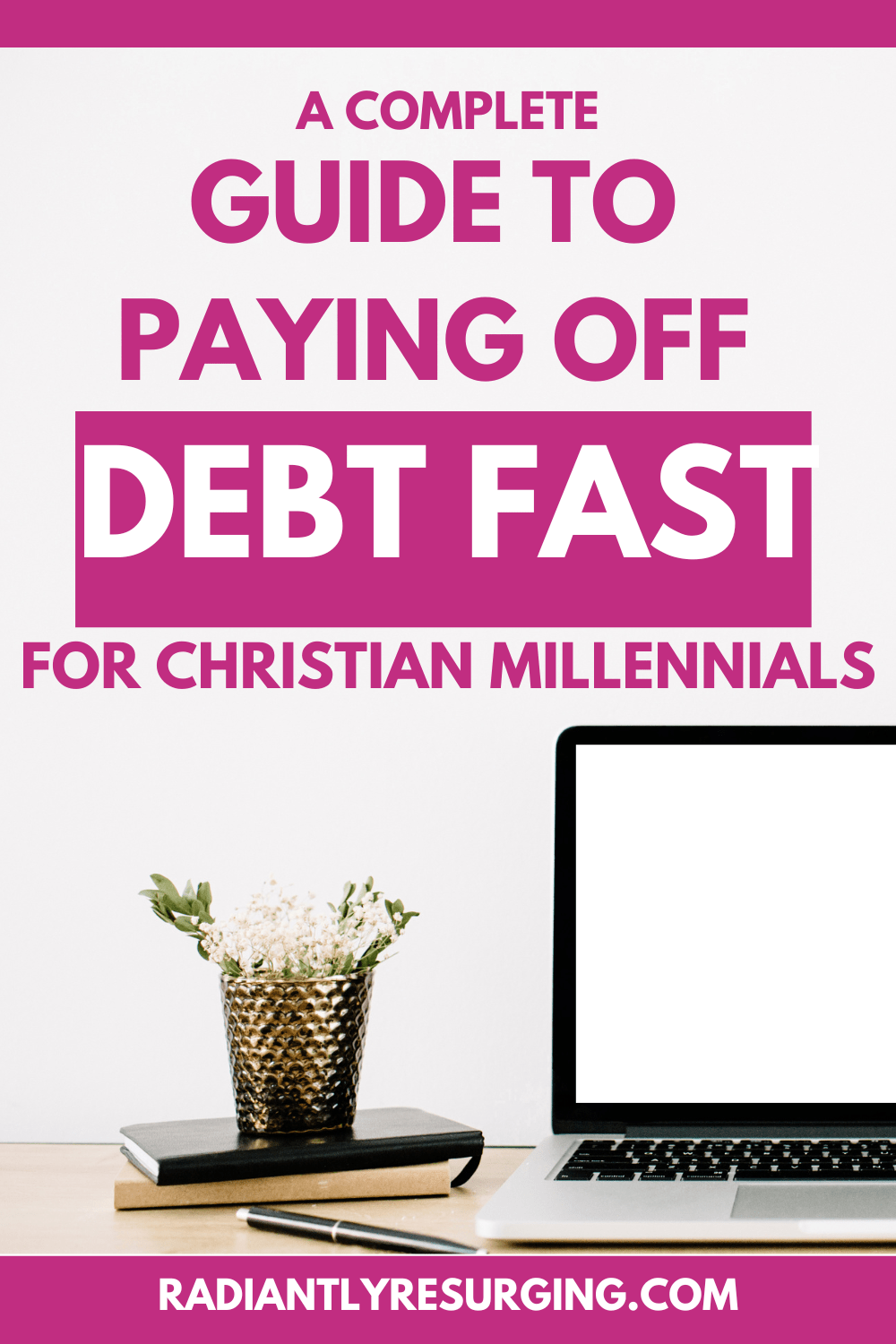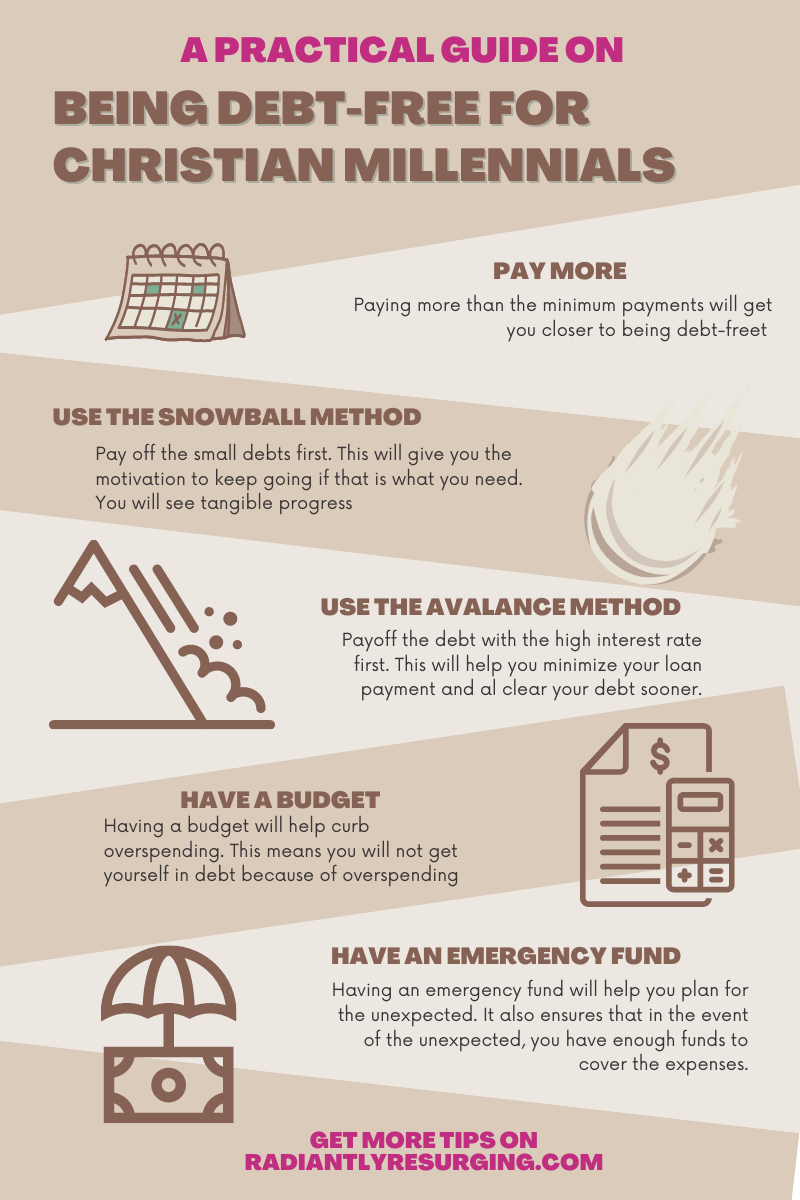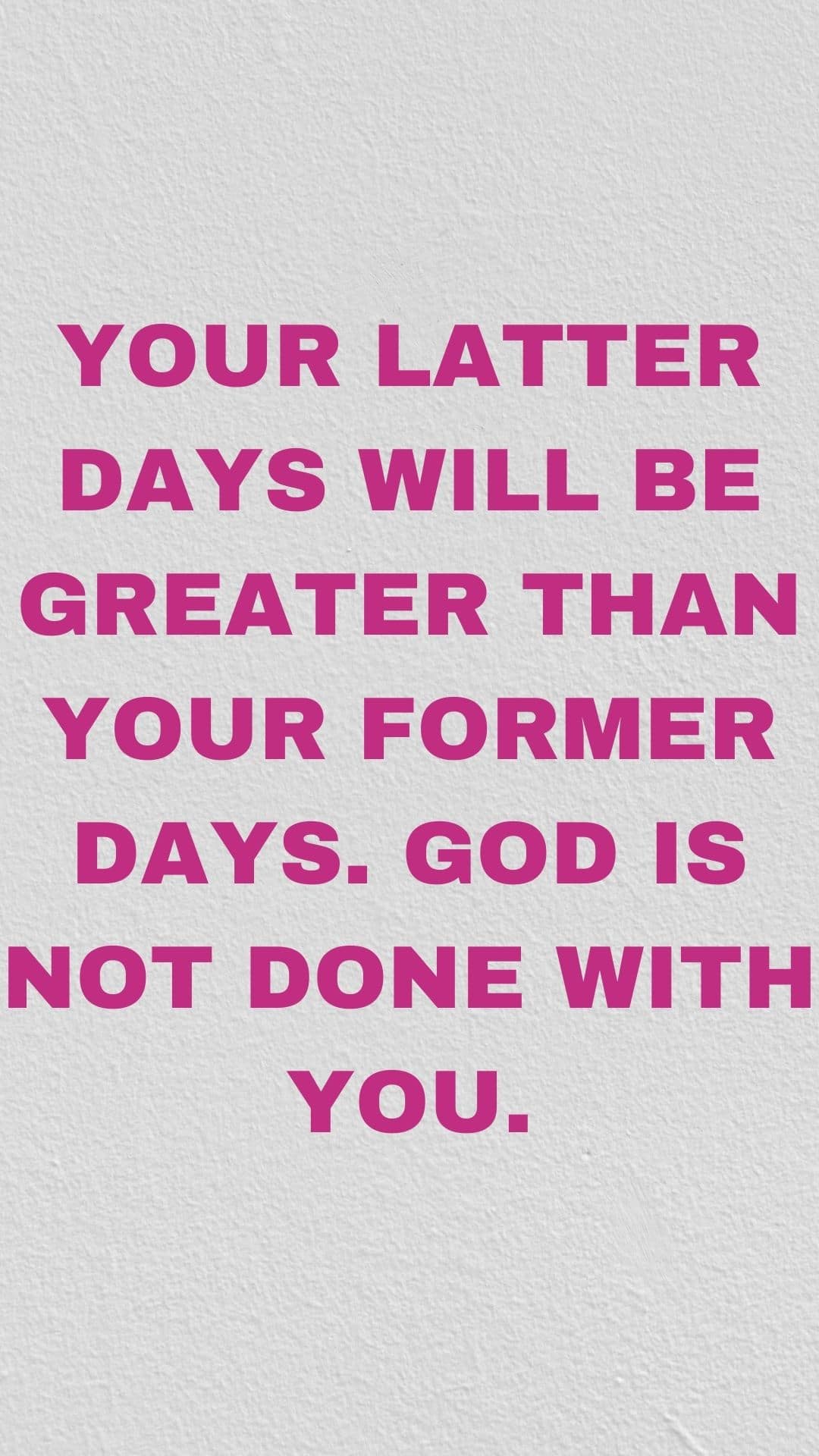
A Complete Guide To Being Debt-Free For Christian Millennials.
Estimated reading time: 10 minutes
We all want to know how to get out of debt. Therefore, today I want to give you keys that will help you know how to pay off your debts. Sounds good to you? Well, today I have a complete guide to being debt-free for Christian millennials. Before we can look at how to pay off debt, let us consider the importance of paying off debt and being debt-free.
- The importance of paying off debt and aiming at being debt-free for Christian Millennials.
- Signs that you have taken off too much debt.
- What then should you do if your debt level is too high?
- 5 keys that will aid you in becoming debt-free as a Christian millennial.
- Pay off more than the minimum will get you closer to becoming debt-free as a Christian millennial.
- Pay off your most expensive loan first. (debt avalanche method)
- Use the snowball effect method.
- Living below your means is a great key to helping you become debt-free as a Christian millennial
- Consider consolidation
- Conclusion
The importance of paying off debt and aiming at being debt-free for Christian Millennials.
Peace of mind– When you have debt, you constantly worry wondering if you will pay your debt. Therefore working towards paying your debt means that you will have peace of mind and a clear head. As the Bible reminds us constantly, a borrower is a slave to the lender and if you want to avoid being a slave to the lender, then the best way to do that is to pay off your debt.
Paying off debt ensures that you have the finances to do other things. It is difficult to invest and save when you have debt obligations. After all, that is where your money is tied to. Once you have paid off your debt, you can think of investing and saving. How can you plan for retirement or start a business when your bet is overwhelming you?
Setting new financial goals becomes easy. When you are not constantly overwhelmed by loans and debt, you can easily set financial goals that set you up in the future. Whether it is setting up your child’s college fund or getting life insurance, you can easily do that when you have no debt to think about.
Giving becomes easy. As Christians, we understand the importance of giving to those in need. But let me ask you this, how can you lend to the poor when you are drowning in debt?
Own your assets. When you are in debt, there is the possibility of having your assets auctioned off. Not only that, as long as you are not done paying off your mortgage, the bank also owns your home. That is why it can auction it off when you default on your payments. Paying off debt ensures that you own your assets and never have to worry about losing them to anyone.
That’s God’s will for you. God wants you to be a lender and not a borrower. He knows that as a borrower you will remain a slave to the lender. And He wants so much more for you. He wants to introduce you to the Kingdom’s economy. And this involves being debt-free.
Signs that you have taken off too much debt.
Your obligations outweigh your income. When your debts outweigh your income, then this is a sign that you have taken on too much debt. The goal is to always ensure that you income can cover your expenses. And when that is not the case, then it means that your debt is high. This will lead you to borrow so as to meet your payment and this keeps you stuck in a debt cycle. If you ever find yourself borrowing to meet your obligations, then that is a sure sign that you have taken on too much debt and you need to do something about it.
Draining your savings to pay off debt. When you find that you have drained your savings to pay off debt, then this signals a huge problem. Again your income should be sufficient to pay your obligations (what you owe) and when that’s not the case, then it means you have taken on too much debt.
You need credit to survive. When you find yourself using your credit card to pay for groceries and your monthly expense, then this is a sign that something is wrong and your debt level is too high.
You are hiding your spending habits. Are you hiding your spending habits from your loved ones? Are you afraid of them finding out how much you owe? This could be a sign that you have too much debt. Are you afraid that they will discourage you from taking on debt? Then you could be addicted to debt.
Your debt balance stays the same despite regular payments. This happens because of interest payments. When this happens then it is a sign that your debt level is too high.
Mathematically, this is how you can calculate your debt level and know if it is too high. And we will use the debt to income ratio.(DTI)
DTI ratio is simply the comparison between how much you owe versus how much you earn. We use the gross monthly income( income before taxes)
What you should include as part of your debt.
- Monthly credit card payments
- Alimony
- Child support
- Monthly rent or mortgage payment
- Loan payments (such as student loans and auto loans)
Things that shouldn’t be calculated as part of your DTI include:
- Cable
- Cell phone
- Electricity
- Gas
- Groceries
- Insurance
- Internet
- Monthly subscriptions
- Taxes.
Ideally, you should have a percentage figure of less than 50% with 35% and below being ideal. And to calculate this you need to add up all your obligations and divide them to your earnings before taxes.
Let’s say your obligations amount to $1000 and your income is $2500 then your D.T.I is 1000/2500.= 40% this is okay but can be improved. Anything above 50% is a cause for concern. And it is a sign that your debt level is too high.
What then should you do if your debt level is too high?
Take a debt consolidation loan. Having this kind of loan is great because it offers low-interest rates. This means that your focus is on principal repayment and not on interest payments. Not only that, you only worry about paying off one loan. And you use this loan to pay off your other loans.
Find yourself a coach that will help you get out of debt. This kind of coach will give you a plan tailored to your specific situation, which in turn will help you know exactly what you need to do. Alternatively, you can get a credit counselor. It is okay to ask for help when you need it. And there is nothing wrong with that. You can often find free to low-cost credit counseling services through nonprofits, banks, credit unions, and nearby churches. Find a debt settlement program.

5 keys that will aid you in becoming debt-free as a Christian millennial.
Pay off more than the minimum will get you closer to becoming debt-free as a Christian millennial.
Paying off more than the minimum will help you get out of debt quickly. This is because you pay both the interest and principal. Paying only the minimum amount means you are paying the interest with very little left for principal payment, which is the loan amount. This keeps you in debt longer and leads to you paying even higher interest. Paying off more than the minimum leads to you saving more and also improves your credit score.
Pay off your most expensive loan first. (debt avalanche method)
This does not mean not paying the other loans. What this means is that you simply use your available balance to pay more on the loan with the highest interest. By doing so, you reduce your interest payments and also help you eliminate your debts faster. To do so, you start off by listing all your loans according to interest rates, starting from the highest to the lowest. You then use your available funds to pay off more than just the minimum balance. Once paid off, you love on to the next until you finish paying off your debt.
Use the snowball effect method.
If motivation is your goal, then using this method will really help you. In this method, you aim at paying off the small debt first then work your way to the one with the largest amount. Of course, you still continue paying your minimum balance on your other loans to avoid defaulting on your payment. But every extra money you have, you use to pay off the smallest debts.
The difference between this method and the avalanche method is that the avalanche method focuses on paying the loans with the highest interest payments first, while this one focuses on clearing the smallest debate first. Depending on what your goal is, you could choose this method.
Living below your means is a great key to helping you become debt-free as a Christian millennial
This simply means cutting back on your expenses to ensure that you don’t take up more loans to keep up with your peers. In doing so, you will use the available balance to pay off your debts through either the snowball or avalanche method. Living below your means looks like you having your expenses account to not more than half your monthly income. And to help you live below your means, use the 50/30/20 strategy where 50% of your salary goes to your expenses, 30% goes to your wants and 20% goes to your savings. When using both the snowball and avalanche strategy, you just set aside more of the 20 & 30% to go towards your debt payment. If your expenses are more than 50% of your income, cut back on expenses. Remember, you have a goal and that is to pay off your debt ASAP.
These tips will help you live below your means.
- Track your spending. You do this by knowing your income and listing all your expenses. Find out if your income exceeds your expenses. When living below your means, it is vital to ensure that your income > expenses.
- Write your monthly obligations and expenses. Do this by making a budget. Having a budget will help keep you on track. Which expenses can you cut back on? Focus on minimizing your expenses as much as possible.
- Pay less interest- The best way to minimize your interest is by paying the high-interest loans first using the debt avalanche strategy. As you aggressively pay the loans with the highest interest, you end up paying less interest as more money is spent on paying the loan principal.
- Improve your money mindset- Find courses online that will help you change your view on money and have a great relationship with money. And this starts by realizing that money is the means to an end and not the end goal. Don’t allow money to become your slave. Read books as well. Some books I would recommend are The Psychology of money, The intelligent investor, and Think and grow rich, just to name a few. You can even follow people on YouTube who talk about personal finance. Knowledge is power and it will help you transform and renew your mind to match the level you aim to get which is debt-free.
- Be disciplined: This looks like you sticking to your budget, avoiding overspending and retail therapy. Just stay focused on your goals.
- Pay yourself: Always set some funds aside to reward yourself once in a while and put it in your budget.
Read also: A complete guide on Budgeting for Christian Millennials
Consider consolidation
Becoming debt-free as a Christian millennial can also be achieved through consolidation. This simply means merging your balances into one so you can make a single monthly payment. And you do this by taking a debt-consolidation loan, which means rolling all your debts into one big loan at a lower interest rate. This translates to you using the loan to pay off your other debts and then having only one loan to pay. When looking into this, find loans that have lower interest rates. You can also consider consolidation by consolidating various credit card balances onto a new credit card, ideally one with a lower APR called a balance transfer card.
Check this tool out to help you with your budgeting.
Conclusion
The Bible reminds us that a borrower is a slave to a lender. And one blessing God spoke over the Israelites in Deuteronomy 28: 1-14 was that they would lend to many nations. This means that God’s ultimate desire for you is to be a lender and not a borrower. So today I want to encourage you to start off your journey of the debt payment. Having no debt will help you sleep better at night and start working towards the accumulation of wealth. Leaving an inheritance for your grandchildren is a trait for the wise.
Don’t feel guilty for being in debt, just choose today to change your narrative. Others have done it and so can you. Decide to become debt-free as a Christian millennial today.





